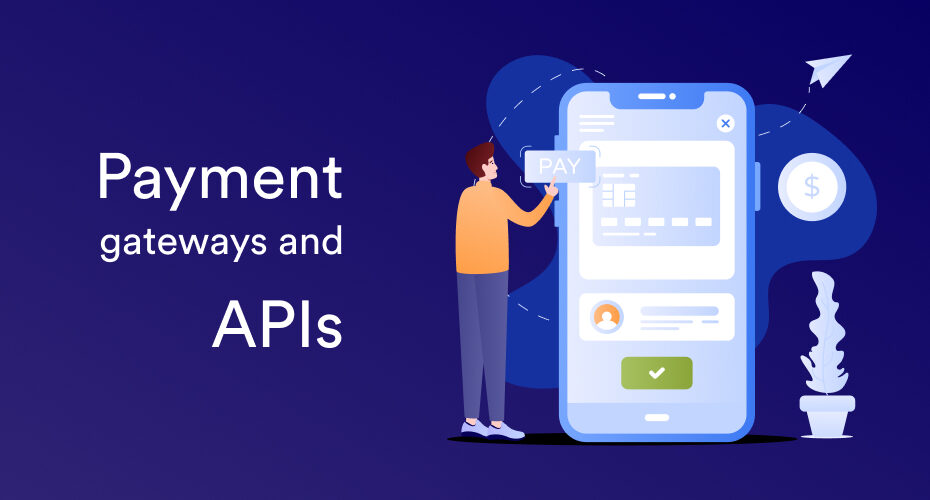Payment gateways and APIs
The history of payment gateways and APIs for merchants and consumers to adopt crypto payments is relatively short, but it's been rapidly evolving. The first payment gateway for Bitcoin was BitPay, which was founded in 2011. BitPay allowed merchants to accept Bitcoin payments and automatically convert them into fiat currency, making it easier for merchants to adopt the new technology.
Since then, the number of payment gateways and APIs for crypto payments has increased significantly, with new solutions being introduced that support a growing number of cryptocurrencies and offer more advanced features, such as multi-signature transactions and escrow services. With the growing popularity of cryptocurrencies, many traditional payment providers have also started offering crypto payment services, including PayPal and Square. These companies have made it easier for merchants and consumers to adopt crypto payments by integrating them into their existing payment infrastructure.
In recent years, the rise of decentralized finance (DeFi) has also led to the development of new payment gateways and APIs that are built on blockchain technology and operate without intermediaries like banks or governments. These solutions offer greater security, privacy, and control for users and their transactions.
Payment gateway and API: Explained
A payment gateway is a software solution that allows merchants to accept payments from customers for products or services. The payment gateway acts as a middleman between the customer's bank and the merchant's bank, facilitating the secure transfer of funds from the customer to the merchant.
An API, or application programming interface, is a set of protocols and tools that allow different software applications to communicate with each other. In the context of payment gateways, an API allows merchants to integrate the payment gateway into their own websites or applications, enabling customers to make payments directly from their devices without having to navigate to an external site.
A payment gateway API specifically designed for cryptocurrency payments will allow merchants to accept payments in various cryptocurrencies, such as Bitcoin, Ethereum, or others. The API will also typically handle the conversion of cryptocurrency into fiat currency if desired, making it easier for merchants to manage their financials. By providing a simple and secure way for merchants and consumers to adopt crypto payments, payment gateway APIs play a critical role in driving the wider adoption of cryptocurrencies as a means of payment.
Role of payment gateways and APIs in driving adoption of cryptocurrencies
Payment gateways and APIs play a crucial role in facilitating the acceptance of cryptocurrencies as a means of payment. Payment gateways provide a bridge between the merchant's e-commerce platform and the financial system, allowing merchants to securely process payments and manage transactions. APIs enable developers to easily integrate cryptocurrency payment options into their platform or application, providing a seamless user experience for customers who wish to pay using digital currencies.
By providing the infrastructure for secure and convenient transactions, payment gateways and APIs can help increase the adoption and usage of cryptocurrencies, leading to wider acceptance and increased confidence in digital currencies as a legitimate form of payment.
- Security: Payment gateways and APIs are designed to ensure the security of cryptocurrency transactions. They use encryption and other security measures to protect sensitive information, such as payment details and customer data, from being intercepted or compromised. This helps to build trust in the system and increase its stability.
- Convenience: Payment gateways and APIs make it easy for merchants to accept cryptocurrency payments and for customers to pay using digital currencies. They automate many of the processes involved in a transaction, such as converting cryptocurrencies into fiat currency and transferring funds to a merchant's bank account.
- Accessibility: By providing an accessible and user-friendly interface, payment gateways and APIs make it easier for merchants and consumers to use and accept cryptocurrencies, even if they lack technical expertise. This can help increase the adoption of digital currencies and promote their use as a mainstream form of payment.
- Low fees: Compared to traditional payment methods, such as credit cards or wire transfers, cryptocurrency transactions typically have lower fees. This is because they bypass intermediaries and do not require the same level of processing, which can make them an attractive option for merchants and consumers alike.
- Global reach: Payment gateways and APIs can facilitate cross-border transactions, allowing merchants and consumers to transact with each other regardless of location. This can help increase the reach and accessibility of cryptocurrencies, and make them a more versatile and useful form of payment.
Types of paymnet gateways and APIs
There are two main types of payment gateways and APIs: hosted and integrated.
Hosted Payment Gateways:
Hosted payment gateways provide a secure, off-site payment page where customers can enter their payment information. The payment page is hosted by the payment gateway provider, and merchants simply redirect customers to this page to complete a transaction. Hosted payment gateways are typically easy to set up and use, and they handle the security and compliance aspects of processing payments.Integrated Payment Gateways:
Integrated payment gateways are integrated directly into the merchant's website, allowing customers to complete transactions without being redirected to an external site. Integrated payment gateways provide more control and customization options for merchants, but they also require more technical expertise to set up and maintain.
In addition to these two main types, there are also APIs (Application Programming Interfaces) that allow developers to integrate payment processing into their platform or application. APIs can be either RESTful (Representational State Transfer) or SOAP (Simple Object Access Protocol) based, and they provide a way for developers to access and use the functionalities of a payment gateway in a flexible and efficient way.
Each type of payment gateway and API has its own unique features and benefits, and the best choice for a particular business will depend on its specific needs and requirements. An application programming interface (API) for a blockchain is a tool that enables developers to engage with a blockchain. Through the use of a blockchain API, developers can retrieve data and use functionalities provided by the blockchain, without having to create their own blockchain infrastructure. Nu10’s team of blockchain professionals, developers, and specialists provides web3-related consulting, development, and launch services. Reach out to us for more information.
About Author
Mohit Kataria
Mohit, a career entrepreneur with 21+ years of experience, specializes in conceptualizing large scale analytics initiatives and driving them to success. He co-founded Manthan Research & Analytics, later acquired by M3 and rebranded as m360 Research. He excels in building and scaling high performance teams.









